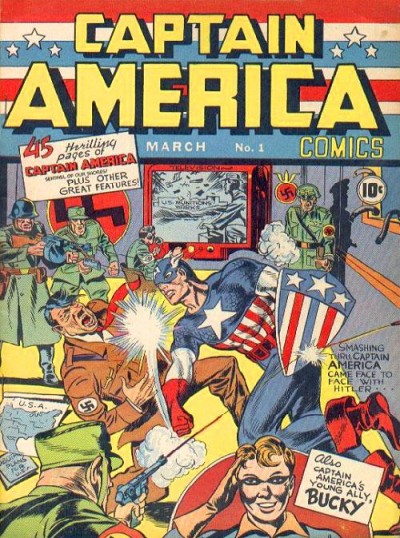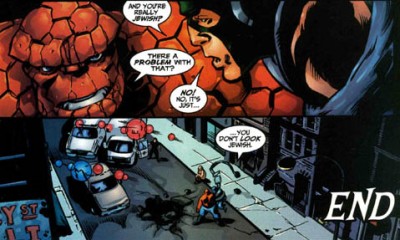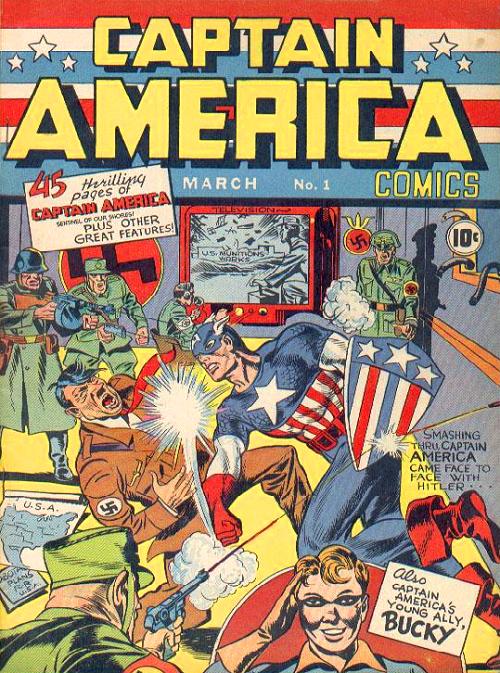Comic books, for me, were an acquired taste.
Growing up, I devoured anything with words — the backs of Pokémon cards, books pilfered from my mom’s shelf, the booklets stuffed inside CD cases — but never comics. Nobody in my life read them, and my weekly TV rotation was tuned into Rugrats rather than the animated Batman series. I’m not even sure that I saw a comic book at all until I was in college, which, in today’s world, feels like admitting that I took no side in the Backstreet Boys vs. N’Sync debate (Backstreet Boys all the way, in case you were wondering), or that I think Hamilton is overrated (I’ve seen it twice, and Lin called me his homie; I think you can figure out where my opinions lie).

I do remember the first comic book that I read, though: the first issue of Ultimate Comics: Spider-Man, when Miles Morales burst onto the scene, making me simultaneously want to start a Miles fan club with Ganke and fix Miles a steaming mug of hot chocolate. After that, I was hooked.
My favorites emerged in the blink of an eye, as if I’d grown up falling asleep under piles of comic books instead of Goosebumps: Miles Morales, Jaime Reyes, and Damian Wayne (even better when paired with Dick Grayson and, like all Robins, best when Bruce Wayne was nowhere to be found). The guys who worked at the comic book store exactly halfway between my apartment and school nudged me towards the classics, and so I fell into X-Men, Spider-Man, and Captain America, collecting a new favorite every few panels.
Comic books, somehow, began to fit into my life like they’d been there all along; it’s easy, when there’s multiple universes and character incarnations to lose yourself in. I saw the changes in the world around me matched frame-by-frame within their pages, and, maybe more importantly, I saw myself in them — even when I wasn’t explicitly there.
Representation is important to me — as a woman, as a Native American, and as a Jew. The media is constantly trying on one of two hats: one that erases me, and one that dictates my existence.
I don’t even need to unfold my fist to count the amount of explicitly Jewish superheroes saving the world, because they’re barely there. Superheroes are, traditionally, big-jawed white men, whose proclaimed religion is, more often than not, America. Not Jewish, definitely not Jewish.
And yet.
The history of comic books is the history of Jews — creators barred from other pursuits; characters ostracized for something innate to them, but something that made them destined, chosen; heroes rising and rescuing the downtrodden at a time when concentration camps became a fixture on Europe’s landscape.
To be more explicit — because I’m self-aware enough to know, at least, that most people don’t live where I live — comic history is Jewish history. The superheroes that cover our tank tops and book bags exist because of anti-Semitism; they exist because, as Europe went up in flames, America needed a way to feel less helpless, feel bolder. And so Superman burst onto the scene, markers of Judaism scattered all over his stories. Captain America debuted by punching Hitler in the face. Even Spider-Man has the makings of a New York Jew.
I have 75 percent of a Jewish studies minor; I stopped just short of the final required class, a long name requiring colons that boiled down to “The Holocaust.” I couldn’t handle it, the idea of sitting in a glaringly bright room and discussing the attempted extermination of my people.
Instead, I turned to comic books.
I started with the obvious, and sobbed my way through Magneto Testament, sliding it back onto my shelf when I was done, and never opening it again. I started with the obvious, but I fell, in time, back to my standbys, the tiny superheroes who’d dragged me into this mess in the first place.
With Miles Morales, I discovered what it meant to be proud of who you were, and what it was that made your heart beat, even in the face of fear — maybe especially in the face of fear. I discovered what it meant to have a heart so big you couldn’t stop it, what it meant to love the world so much that you couldn’t help but save it — again, in the face of fear, in the face of those who would rather you didn’t exist. “Let’s go be a superhero!” he says, and with it, I can feel the triumph echoing centuries back and back.

With Jaime Reyes, I discovered what it meant to fight your identity, even when it was fused to your bones, and what it meant to accept it. I discovered the power in choosing what you do with your life, and belonging, as the poets say, to yourself. “I should have saved them all,” he says, and with it, I can feel the weight of the tragedies that have followed us since time began.
With Damian Wayne, I discovered the strength of anger, of fighting back until there’s nothing left. I discovered the knowledge that family matters, whether bound by blood or by spirit, and that the allegiance you wear matters. “It’s never completely dark for you, is it?” he asks, and with it, I can feel the string of hope we’ve been clinging to for all our existence.
Comic books matter — their characters, their backstories, their fights matter. When I flip through their pages, when seeing Grant Morrison’s name makes my heart speed up like I’ve just spotted chocolate, I matter.
So on days like today, when Marvel tells me that Captain America was a Nazi all along, when they invalidate the very real struggles that Jews faced when he was born, amidst the smoke and hatred, and the very real struggles that Jews face today, it matters. It’s a way of saying, “your existence, your history, your fight against those who wish you didn’t exist — it doesn’t matter to us.” It is, in short, a slap in the face: to Jews, to the history of comic books, and to the messages found within their panels.
Superheroes aren’t the big-jawed white men the media proclaims them to be; they’re me, and they’re every other Jewish kid growing up with ink smeared on their noses from leaning too far into the words. They’re my history, the good bits and bad bits and heroic, hopeful bits all jumbled together, until it feels like the good guys will always win, in a flurry of capes and cheers, the way a good superhero story should always end.
Leah Tribbett is a recent graduate of West Chester University.

